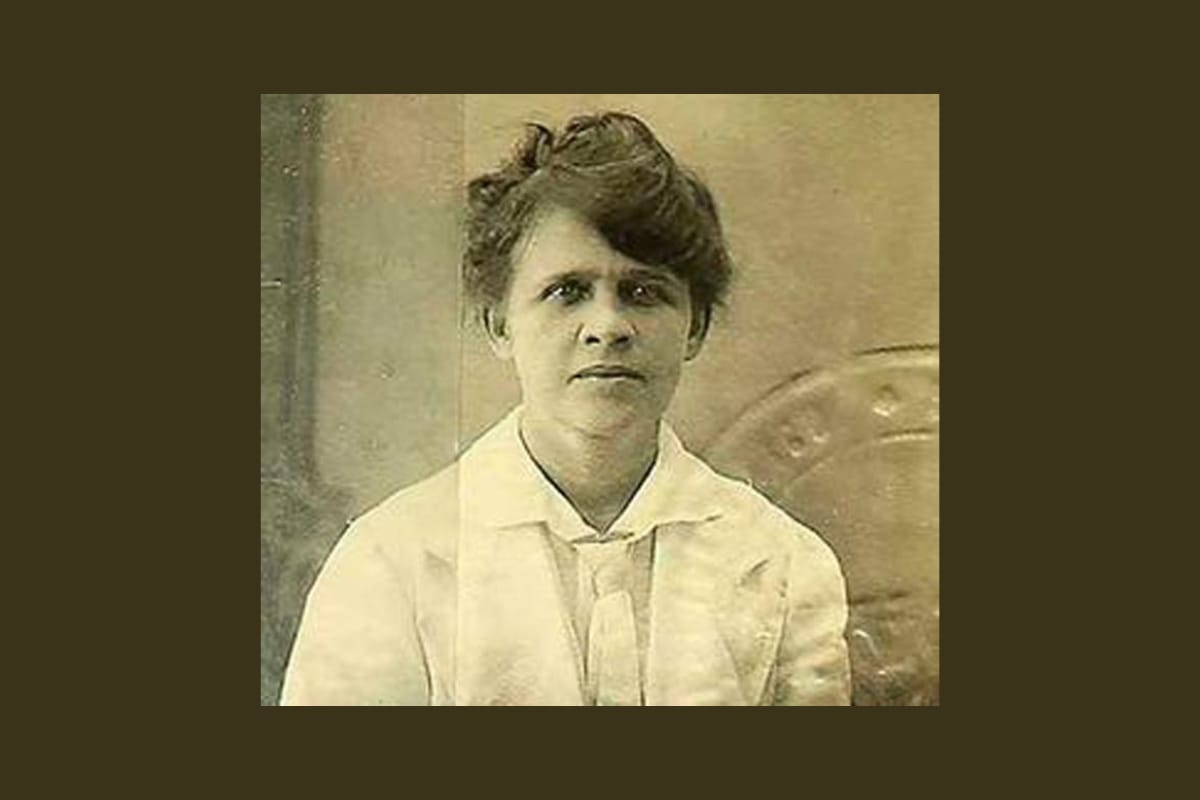
Luisa Capetillo (Public Domain)
SAN JUAN — As I watched an episode of The New York Times’ aptly named op-ed podcast Interesting Times, titled “Did Liberal Feminism Ruin the Workplace? (And can conservative feminism fix it?),” all I could think of was what Puerto Rican feminist and labor leader, Luisa Capetillo, would do if she were alive today.
I bet she would have rolled up her trouser legs and taken to the streets to fight.
Capetillo, the first Puerto Rican woman to wear trousers in public (she got arrested for it in 1915), would have thundered against the white entitlement of conservative columnist Ross Douthat and authors Helen Andrews and Leah Libresco Sargeant, two critics of feminism. She would have found their argument that liberal feminism, which seeks gender equality, is destroying the very “pillars of civilization,” particularly offensive.
A labor leader who read the works of Émile Zola and Victor Hugo aloud to workers on the tobacco shop floor while also discussing feminism, Capetillo would have choked at the suggestion that the right should “roll back the entire feminist era” and replace it with “conservative feminism.” Or is it “pick-me girl” feminism? Women in the workplace who get their validation from men and put other women down to obtain it.
I clench my jaw just thinking of it, but it’s too common in the workplace.
The Legacy of Boricua Feminism
Attacking liberal feminism denies the legacy of the struggle for female liberation in the archipelago, let alone universally. Capetillo was one in a pantheon of Puerto Rican feminists who fought for women’s rights. It was a feminist woman, Mariana Bracetti, who sewed the flag used in a revolutionary uprising in Lares. Meanwhile, Ana Mercedes de Barbudo was the first female independence fighter on the island. Ana Roqué de Duprey founded Puerto Rico’s first women’s suffrage organization in 1917.
Today, it’s young Puerto Rican women and organizations, such as the Colectiva Feminista en Construcción, Paz para las Mujeres, Proyecto Matria, Taller Salud, and others, who are continuing the legacy of Duprey and Capetillo. They are not just wearing pants and championing the rights of the working class — they are also spearheading the struggle for structural change in work, education, marriage, and women’s reproductive rights.
When we speak about women in Puerto Rico, we are talking about being a woman in a poor country with profound inequities brought about by colonialism and a machista culture that fosters domestic violence. There have been advances, but there is still much to continue fighting for
“This [New York Times] podcast hits hard. It makes me think of a slide down through which all the rights we have acquired in the last 100 years will slip and disappear. It saddens me to listen to them. How critical they are of all we gained. It seems to me that their narrow opinions do not universally apply to other societies,” said Dr. Yarí Vale Moreno, an obstetrician-gynecologist and abortion clinic administrator in Puerto Rico.
Women represented 45.2% of the labor force in Puerto Rico in 2022, according to data from the Puerto Rico Department of Labor and Human Resources. However, this is lower than the percentage of women in the working-age population (ages 15-64), which is slightly over 50%.
“The assessment of the workplace of these two white, privileged women surprises me. It surprises me that they do not evaluate other fields, such as medicine, where the rise in the number of women doctors over the last 25 years has benefited patient health,” Vale Moreno said. “Women doctors listen to their patients better, which leads to better diagnoses. Without the participation of women in the field of medicine, this would not have been possible.”
“An Ode to Ignorance”
After Hurricane María devastated the island in 2017, femicides more than doubled, going from 11 cases the year before to 22 in the year after, according to an investigation by human rights groups Proyecto Matria and Kilometro 0. As gender-based violence rose, the pro-statehood Partido Nuevo Progresista (PNP) Governor Pedro Pierluisi declared a state of emergency in 2021. Advocacy groups, who demanded the declaration for years, have continuously criticized it as a failure because the violence has continued.
At a time when the Donald Trump administration wages a war on women globally, and the Trump-loving PNP Governor Jenniffer González Colón will likely move against reproductive rights and is forming alliances with the religious right, the Times’ podcast echoes like the elitist ramblings of white, privileged women. But, it’s redolent of something darker.
“It is an ode to ignorance,” Alondra Hernández, Puerto Rican feminist activist and human rights lawyer, said.
The most egregious part of the podcast — and there are many — is that it sets up two white women as feminine power brokers, creating the illusion they speak for all of us. It purposely silences the experiences of other women, especially those of color, and how feminism changed their lives for the better.
“This article is not a serious reflection on feminism or the workplace. It's a picture of white conservative privilege talking without any grounds, without historic memory or social responsibility. And yes: they consider themselves infallible, but their only constant is the incapacity to understand structural context and how fast they stick their foot in it when they believe they have the authority to speak for the rest of the other women,” Hernández said.
In the end, what this podcast and the intellectual verbiage of white female privilege boils down to is one thing: power and those who will do anything to retain it. The message isn’t subtle, and we need to pay attention so we can roll up our trousers and fight against it tooth and claw.
A former News Director for Univision Puerto Rico and conflict correspondent, Susanne Ramírez de Arellano is a Columnist for The Latino Newsletter.
We want to keep The Latino Newsletter accessible without paywalls. To help, you can donate here. Any amount (one-time or monthly) will keep us going.
What We’re Reading
Border Patrol Monitoring Americans: Via the Associated Press, “The U.S. Border Patrol is monitoring millions of American drivers nationwide in a secretive program to identify and detain people whose travel patterns it deems suspicious, The Associated Press has found.”
Latino Immigrant Labor Force: A new brief from the UCLA Latino Policy & Politics Institute (LPPI), “highlights the essential role Latino immigrant workers play in sustaining state economies and shows the economic risks states face if this workforce is reduced.”
Carlos Berríos Polanco edited and published this edition of The Latino Newsletter.
The Latino Newsletter welcomes opinion pieces in English and/or Spanish from community voices. Submission guidelines are here. The views expressed by outside opinion contributors do not necessarily reflect the editorial views of this outlet or its employees.




